
Browse our fun-packed, helpful plant-based articles, and delve deeper into this healthy, sustainable lifestyle!


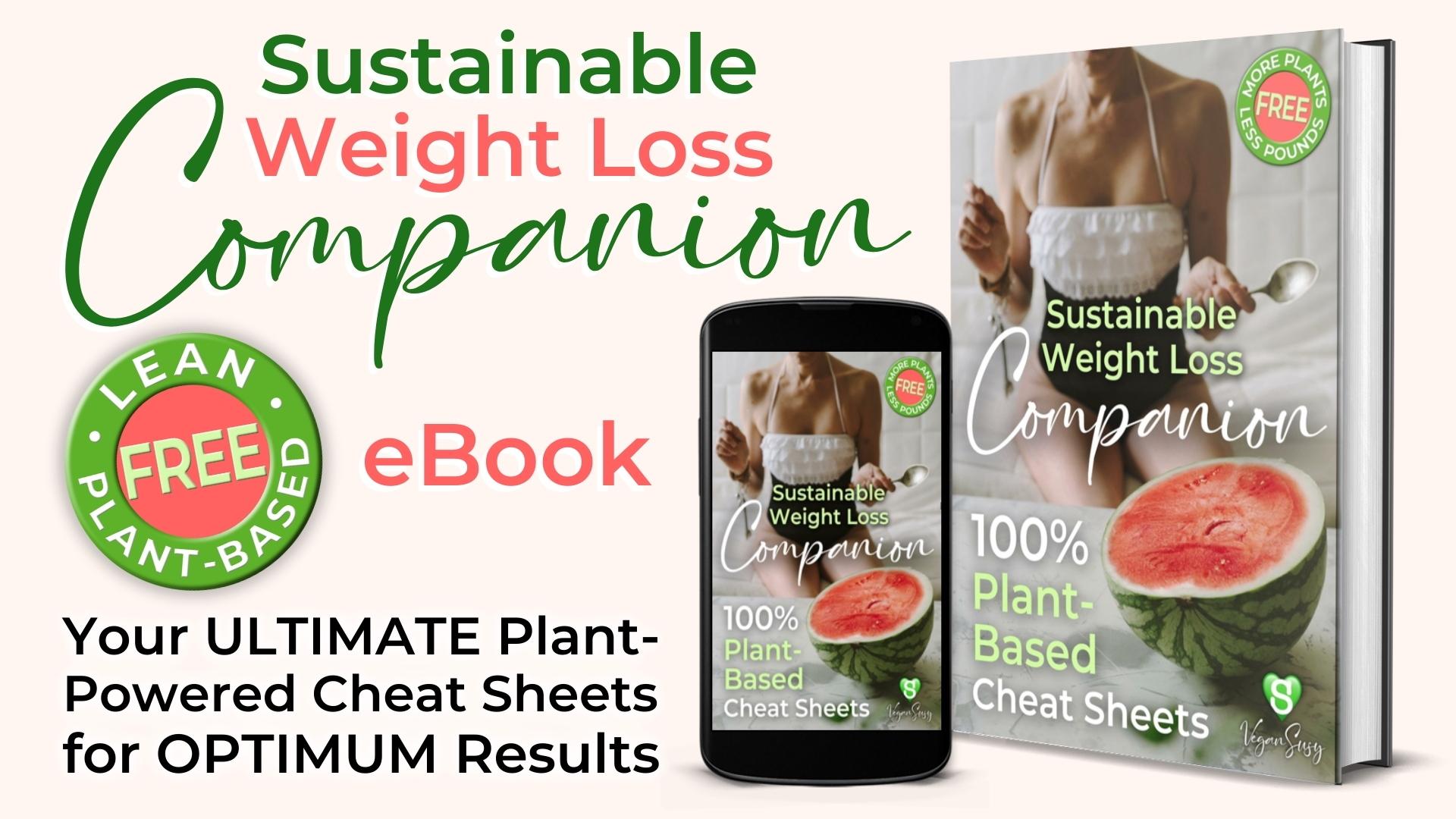
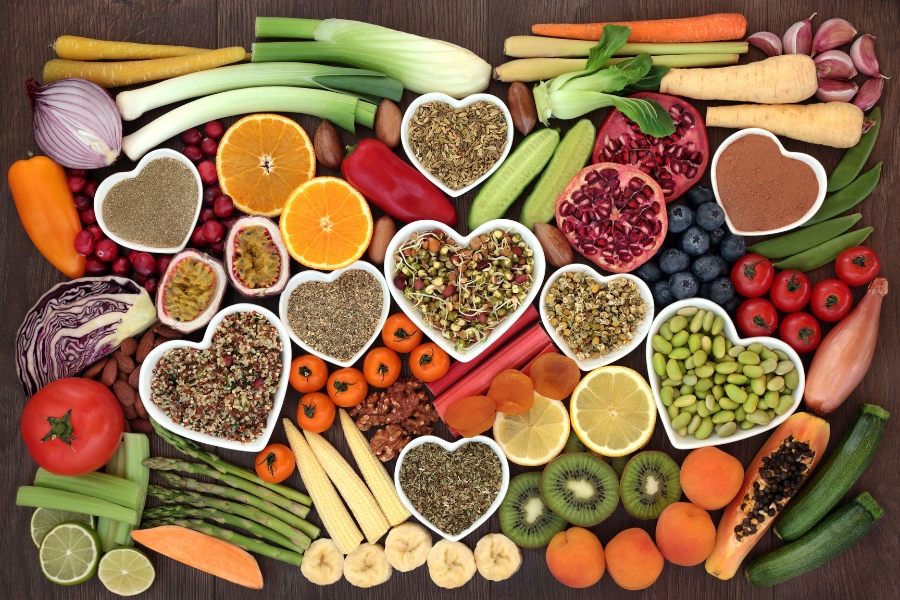
Top Plant-Based Whole Foods to Boost Your Energy Levels
Plant-Based Weight Loss For Women
Author: Plant-Based Susy
When first switching to veganism, it’s common for people to have different experiences. Some may have a burst of energy and feel lighter than ever, while others feel tired. Like with any diet, without proper planning, it’s possible to miss out on vital nutrients, which can lead to fatigue. With a little thought, plant-based diets can be super healthy.
Eating plenty of the right foods is essential to increase energy levels as a vegan. While tasty meat substitutes and sugary treats are tempting, selecting nutritionally dense options the majority of the time is key to helping the body thrive. Let’s discuss the best vegan whole foods for energy.
Table of Contents:
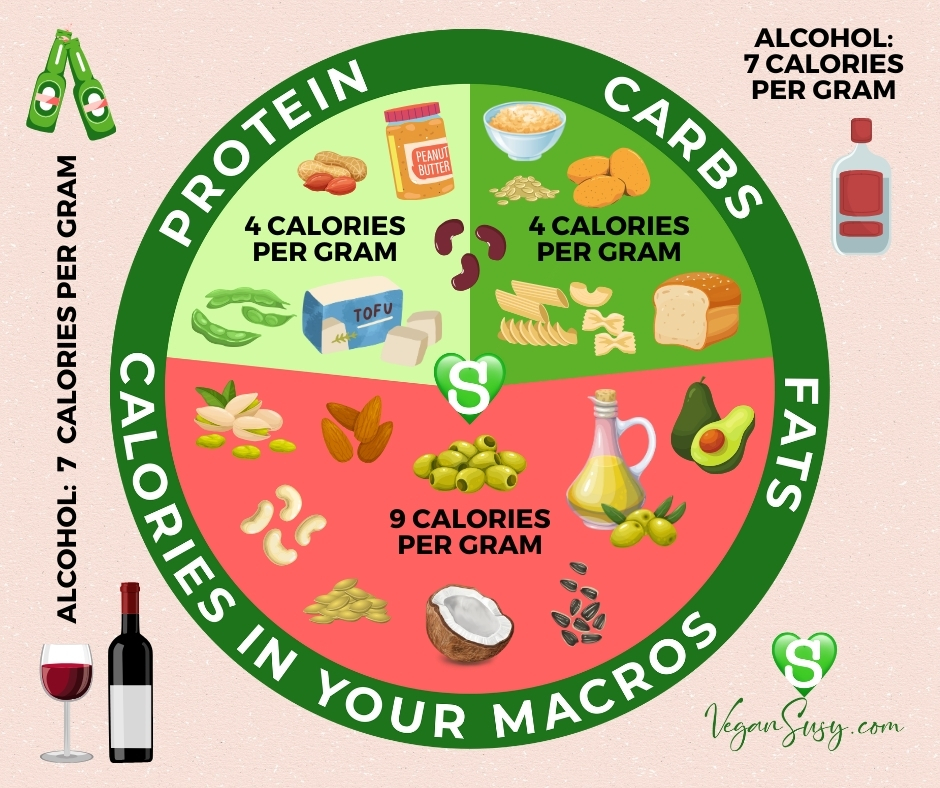
How Does Food Provide the Body with Energy?
Macronutrients come up often regarding weight loss and overall health, but they’re also the key to energy. The three macronutrients are protein, fat, and carbohydrates. Each one of these macronutrients carries different properties, and all provide energy. This energy is measured in the form of calories or kCals. The amount of kCals found in macronutrients are:
Carbohydrates - 4 kCal per gram
Protein - 4 kCal per gram
Fats - 9 kCal per gram
Calories provide the body with energy, so it’s essential to understand which foods help meet the body’s needs. Foods higher in fats tend to provide the most calories, which means the highest amount of energy, too, but carbohydrates are more accessible for the body to use for energy. Only eating food high in fats would not leave you feeling great. It’s all about balance.
Micronutrients are also essential. They don’t provide energy from calories, but some vitamins and minerals still support energy levels. Micronutrients convert food into energy, and some are necessary for getting oxygen where it needs to go.
Water also plays a role in energy levels. When a person is dehydrated, they will feel tired and sluggish. Dehydration slows circulation and hinders athletic performance. Drinking water and replenishing electrolytes are essential to maintaining proper energy levels. Eating water-filled food like fresh fruits is helpful, too.
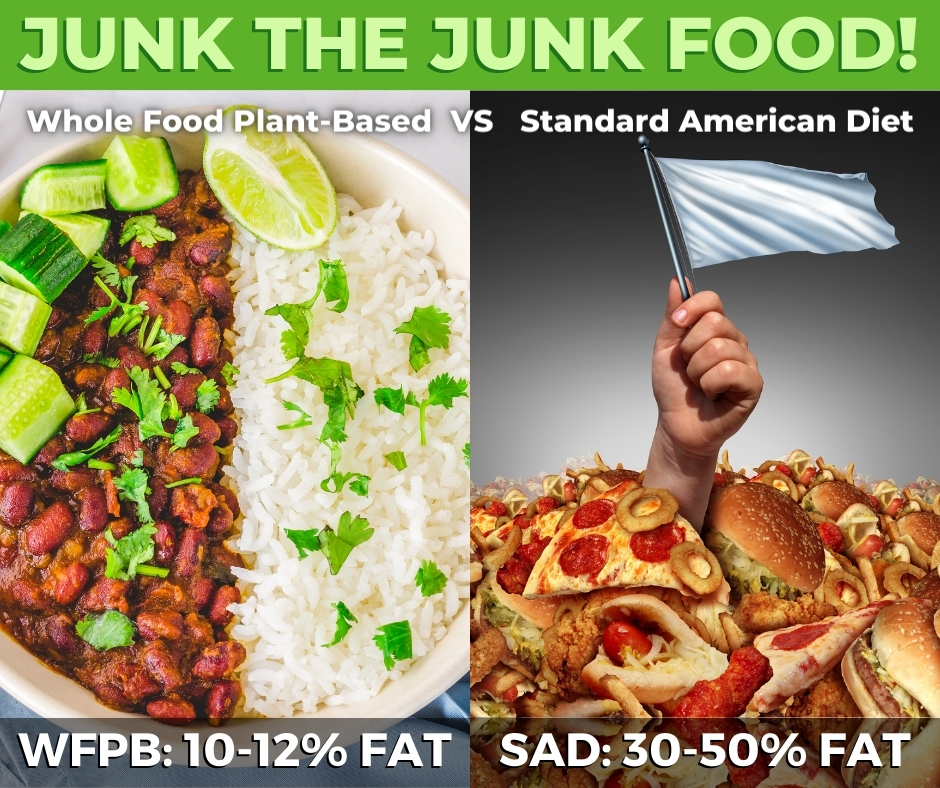
Why Do Processed Foods Cause Low Energy?
Eating habits can contribute to low energy levels. While a whole-food, plant-based diet can be beneficial, other food choices can have the opposite effect. Stopping by a fast-food joint may be easier than cooking, but the high amounts of fat and low levels of fibre in these fried foods are hard to digest, which makes it harder for the body to get the energy it needs from food.
Consuming processed foods like soda and baked goods gives the brain too much glucose. These foods are packed full of refined and added sugars, often in the form of high-fructose corn syrup. The overload of glucose tends to lead to fatigue, and in some cases, depression.
Artificial sweeteners are also known as low-energy sweeteners for a reason. Compared to natural sugars, artificial sweeteners can reduce energy intake. They trick the body into thinking it’s taking in sugar, which can cause fatigue.
Refined grains like white sandwich bread and bagels can also lead to low energy levels. The body digests refined carbs fast, which promotes a spike in blood sugar levels. Once blood sugar crashes, energy will, too. That’s why it’s beneficial to opt for whole-grain versions.
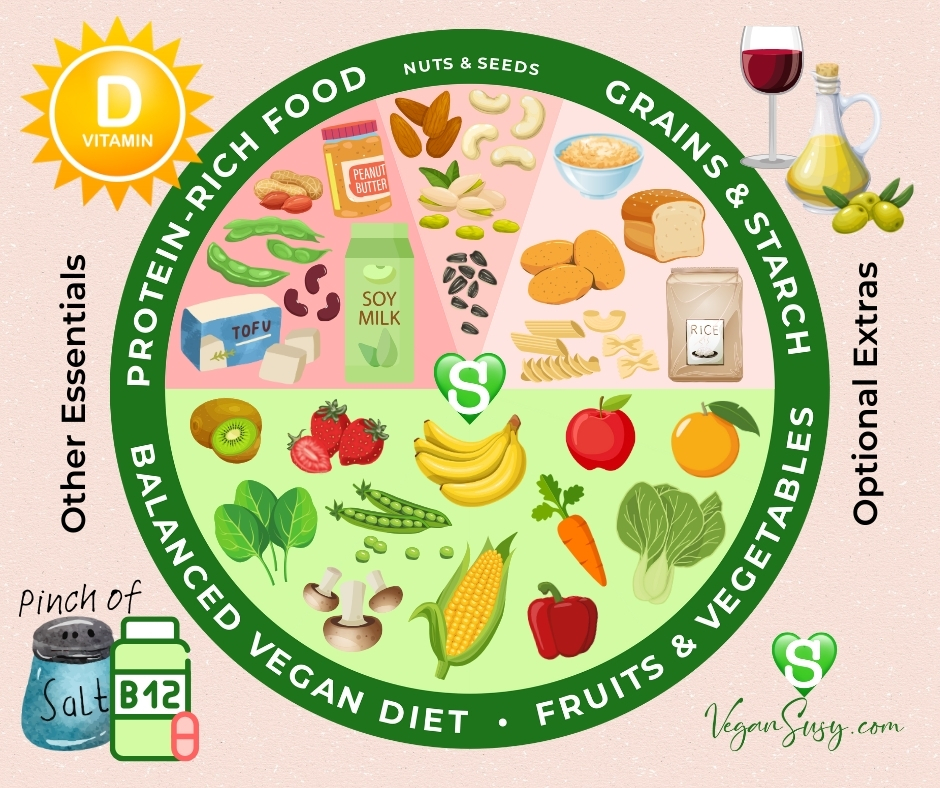
What is a Whole Food Plant-Based Diet?
Diets that focus on plant-based whole foods prioritize plant foods and avoid animal products and processed foods. Diets that ditch processed foods and are packed full of whole ingredients are great for overall health. Fruits, vegetables, whole grains, legumes, nuts, and seeds are essential to a whole-food diet.
Vegan and vegetarian diets aren’t automatically whole foods diets. These days, there are many vegan versions of meat and dairy. There’s lots of vegan junk food and fried delights out there. While vegans abstain entirely from animal products, it’s still possible to consume foods that aren’t nutritionally dense. That’s why focusing on whole foods is so important.
A vegan whole foods diet supports a healthy gut microbiome, which can boost the immune system and mental health. The nutrients in whole foods like fibre prevent overeating. Eating tons of food can lead to a sluggish feeling. Whole foods are packed full of essential nutrients and antioxidants. Eating more whole foods carries many benefits and is excellent for health.
What Are the Best Vegan Whole Foods For Energy?
Specific vitamins and nutrients do a better job of creating an energized feeling than others. Vitamins and minerals don’t provide energy, but they’re essential in converting nutrients into fuel for energy.
Low iron, B vitamins, and vitamin D levels can cause fatigue. It’s critical to get plenty of these in a diet. The same goes for carbohydrates, proteins, and fats. These nutrients provide calories to fuel exercise and everyday activities.
Nearly all foods provide energy to the body, but their nutritional composition varies. A vegan whole-food diet is an excellent way to increase power. Eating well-balanced meals regularly is a great way to create long-lasting energy in the body. This vegan whole foods list will assist in meal planning and stocking up the right whole foods to promote healthy energy.
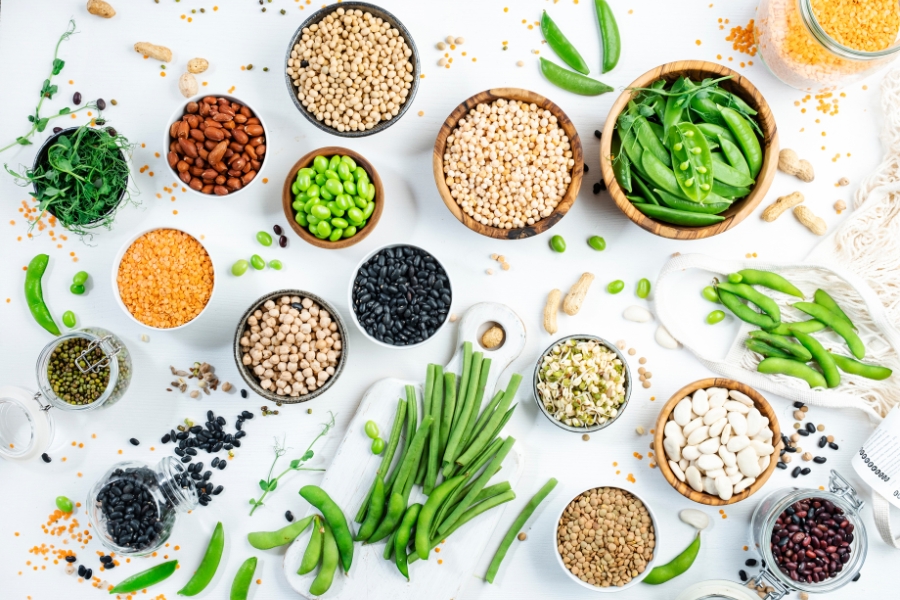
Beans and Lentils
Beans are a great way to increase energy levels as a vegan. They are a great source of protein, fibre, and complex carbohydrates, providing a sustained energy source. Beans also contain magnesium, which helps cells make energy.
Iron deficiency can cause fatigue, but thankfully, lentils are a great source of this beneficial mineral. Iron is essential in carrying oxygen and nutrients throughout the body, so getting enough is important. Lentils also contain protein, which gives the body energy. A large portion of the calories in lentils are protein. Lentils also contain magnesium, fibre, and vitamin B1. Vitamin B1 helps the body convert food into energy.
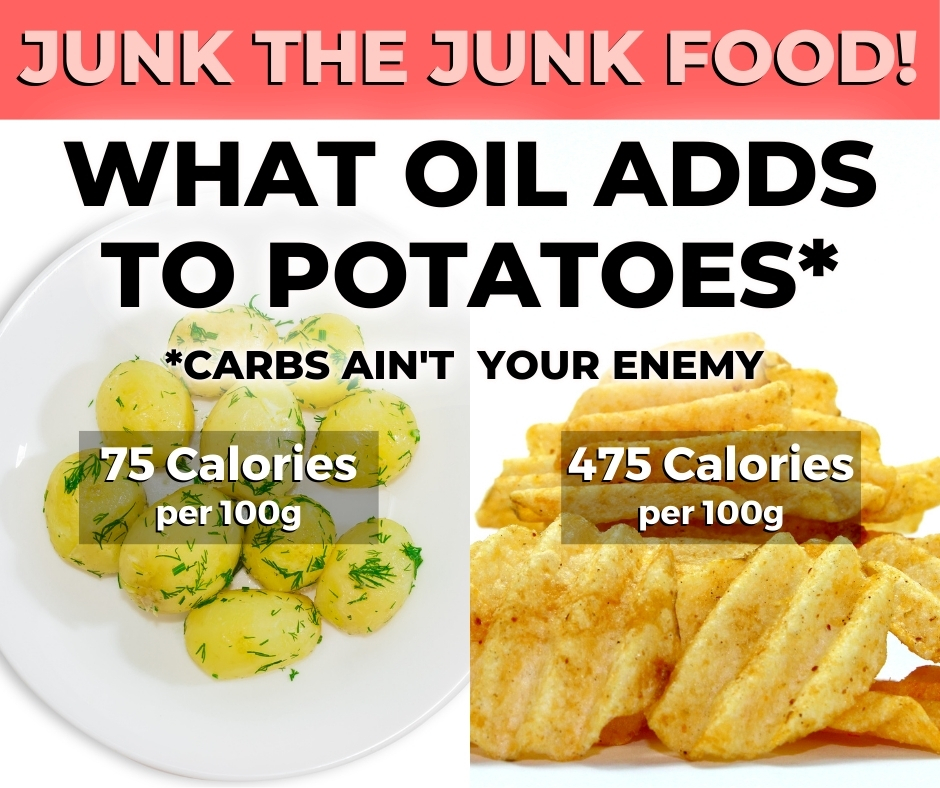
Potatoes
A lot of people believe potatoes aren’t good for you. While baked potatoes loaded with toppings like sour cream, butter, and cheese may not be the most nutritious, they can pack a healthy punch when eaten in other ways. Potatoes are rich in fibre, vitamins, minerals, and energy. They’re one of the most energy-packed vegetables out there. Potatoes contain potassium and vitamin C, too.
It’s good to eat a variety of potatoes. Vegetables of different colors each contain unique nutrients. Switching up meals by eating sweet potatoes one day and russet potatoes another is an excellent way to maximise nutritional benefits.
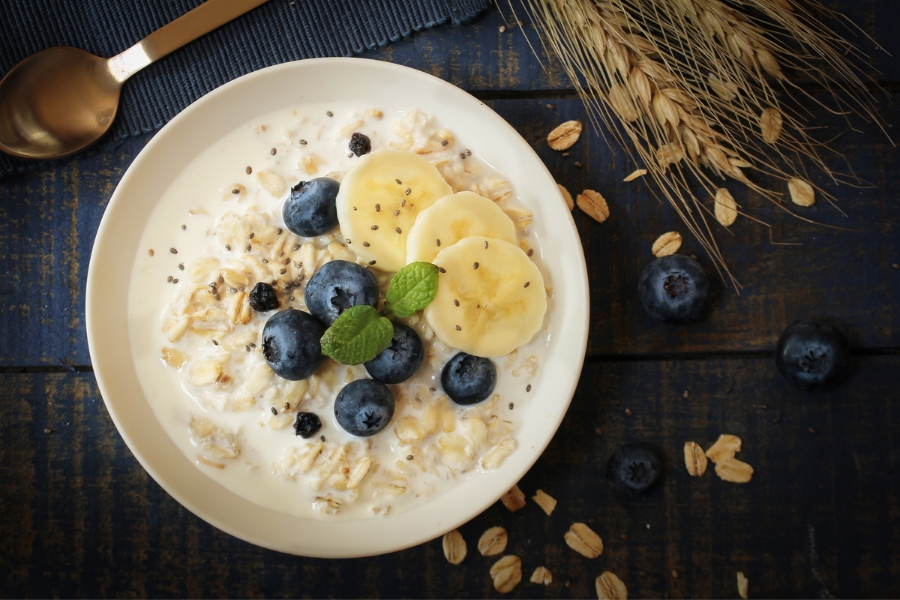
Oats
Oats are a great source of energy. They provide slow-release energy that lasts throughout the day. Thanks to their low glycemic index, they provide long-lasting energy. Oats are also a good source of carbohydrates, protein, and fat. They also contain B vitamins like niacin and thiamin, which help the body metabolise energy.
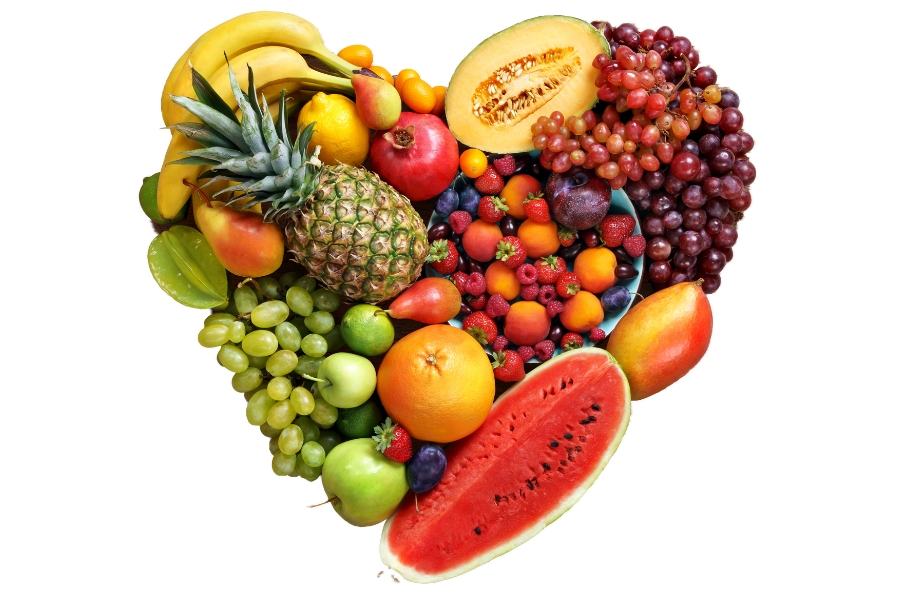
Fruit
Fruits high in fibre and antioxidants are an excellent choice for sustained energy levels. Some delicious options include:
Apples
Bananas
Plums
Goji berries
Avocados
Peaches
Oranges
Fruits high in fibre help naturally occurring sugars digest slowly for sustained energy. The vitamin C in some fruits, like oranges, helps prevent fatigue. This vitamin also enhances iron absorption. Just two bananas can provide 90 minutes of energy.
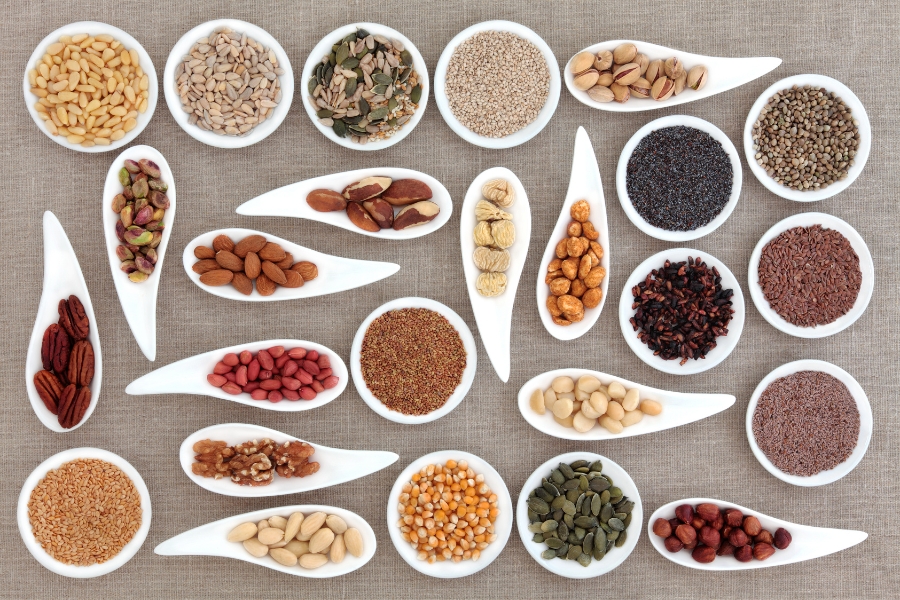
Nuts and Seeds
Nuts and seeds are one of the best options for getting rid of that sleepy feeling. They are known to fight fatigue and hunger, setting the tone for a productive day. When snacking on nuts and seeds, it’s best to reach for raw and unsalted options. Some delicious options for an energy boost include:
Cashews
Almonds
Hazelnuts
Pecans
Walnuts
Pumpkin seeds
Sunflower seeds
Chia seeds are another excellent source of energy, thanks to the healthy fats found inside. They are rich in omega-3 fatty acids essential for body functions and overall health. Omega-3s impact the brain, eyes, heart, and mental health. Chia seeds are easy to incorporate into many snacks, desserts, and smoothies.
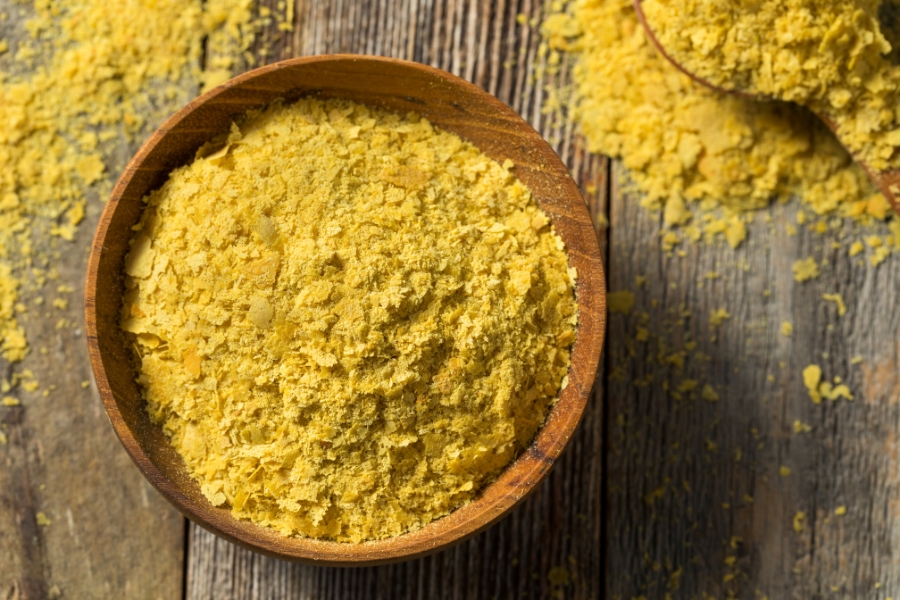
Nutritional Yeast
While not high in calories, nutritional yeast can still help boost energy levels. It contains B vitamins that help convert food into energy. It’s best to reach for one of the brands fortified with vitamin B12. In addition to an energy boost, nutritional yeast supports the immune system and is a source of protein, fibre, and antioxidants. It may also boost skin, hair, and nail health.
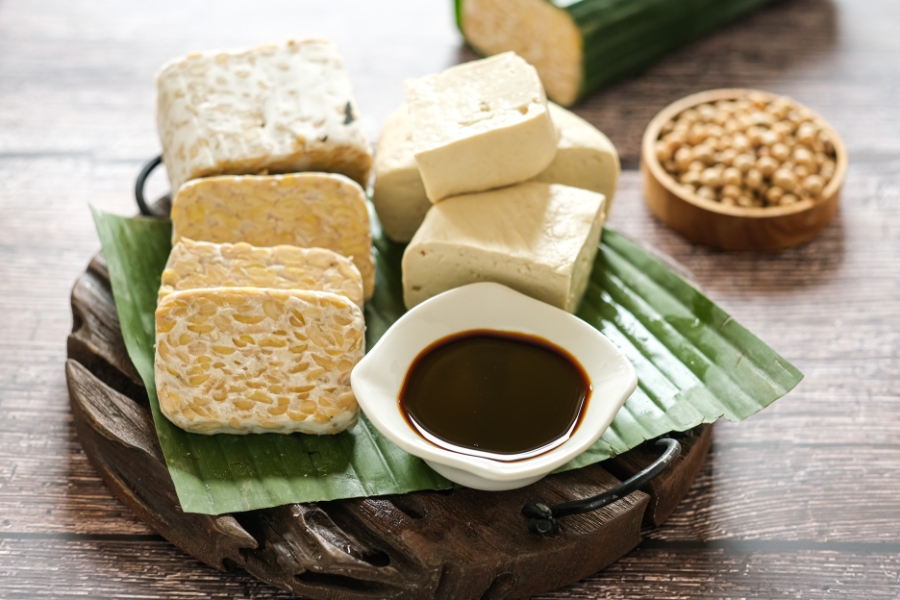
Tofu and Tempeh
Tofu, tempeh and other soy-based products are nutritional sources that are especially helpful regarding energy. They can increase energy levels in multiple ways. Tofu and tempeh are an excellent source of protein, which helps the metabolism run and increases energy.
Tofu and tempeh also provide iron. Iron deficiency can lead to low energy, so getting plenty of it is essential. Tempeh is a fermented food also containing para probiotics, which affect energy levels. Tofu and tempeh also carry other benefits, including B vitamins, heart health support and strengthening bones.
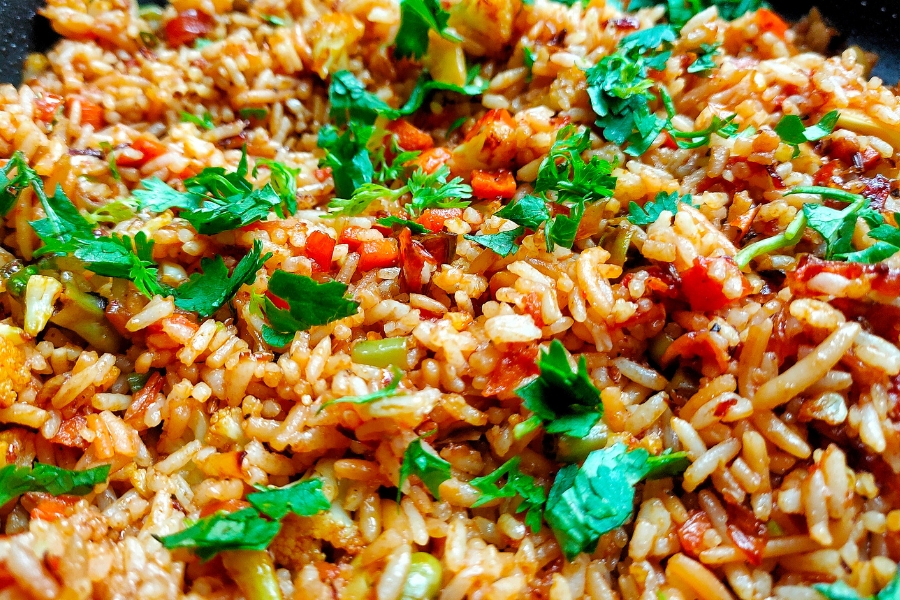
Brown Rice
Brown rice is a good source of carbohydrates and other beneficial nutrients for energy. The carbohydrate in brown rice is wrapped in fibre, which slowly breaks down into glucose. That means brown rice offers a slow energy release, while white rice tends to mean a spike in blood sugar. Brown rice contains the mineral manganese, which is essential for energy production. White rice, on the other hand, is not.
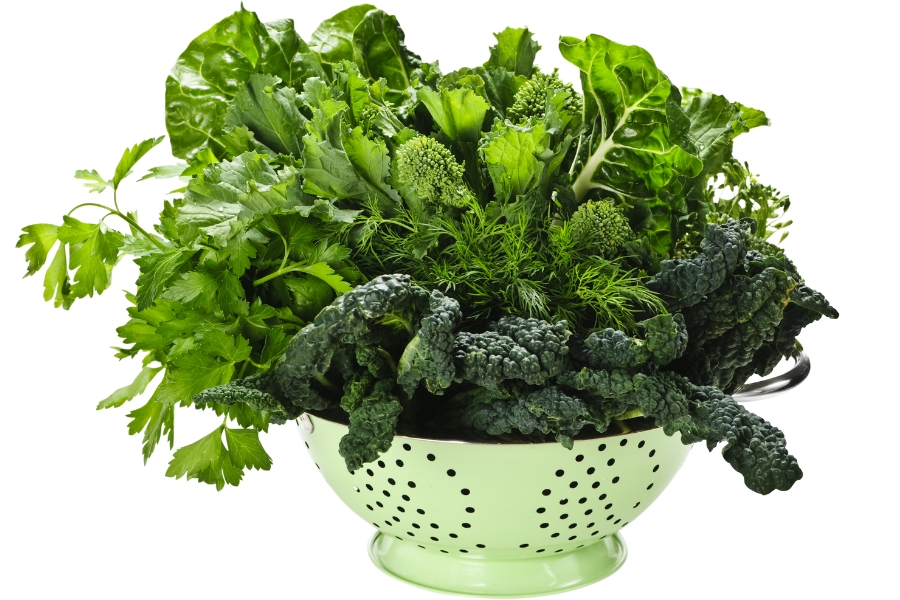
Leafy Greens
Leafy greens are full of nutrients that help the body produce energy. They are high in iron, which prevents a deficiency that causes fatigue. The B vitamins in leafy greens work to convert food into energy. Magnesium helps to fight exhaustion. Leafy greens include:
Spinach
Kale
Rocket (arugula)
Bok choy
Pak choi
Collards
Mustard greens
Lettuce
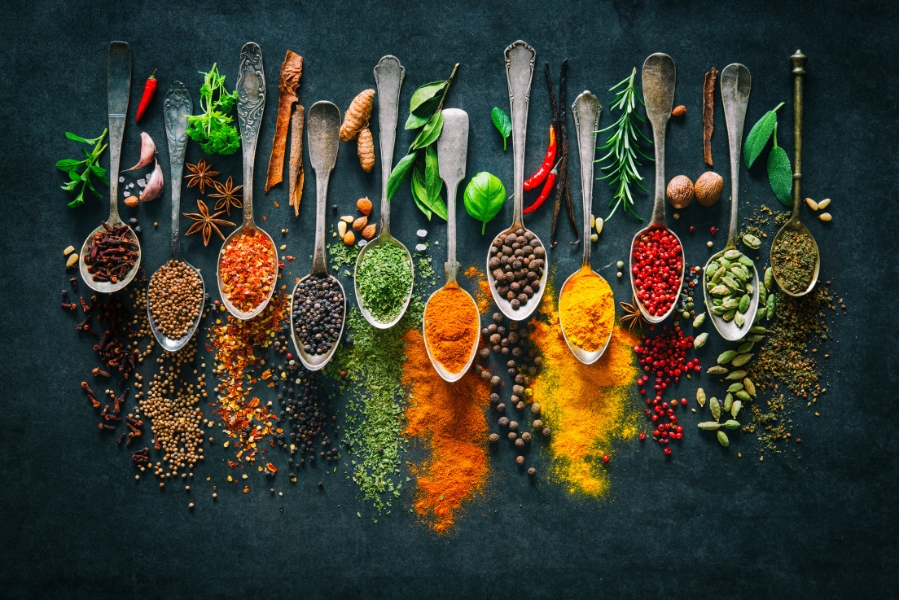
Spices
Spices don’t just add flavour to dishes; they also benefit the body in many ways. They can help the brain function properly, improve memory, and boost energy.
Turmeric has been used to treat fatigue for centuries. According to folk medicine, it is thought to have medicinal properties, including an increase in overall energy levels. Turmeric shots provide energy without the need for caffeine. Many pre-made in-store options are combined with ginger, providing even more power. Beyond the energy benefits, turmeric can help with heart health and arthritis and reduce inflammation.
Saffron is believed to help with mood and energy levels. This is thanks to the way it supports dopamine levels in the brain. Saffron may also reduce heart disease risk factors, improve memory, and improve eyesight.
Cinnamon can help stabilise energy levels and prevent sugar crashes. It also helps regulate blood sugar levels. Some people feel a jolt of energy from just smelling a cinnamon stick, but the same is felt when it’s added to a tasty recipe. Cinnamon also reduces heart disease risk factors and inflammation.
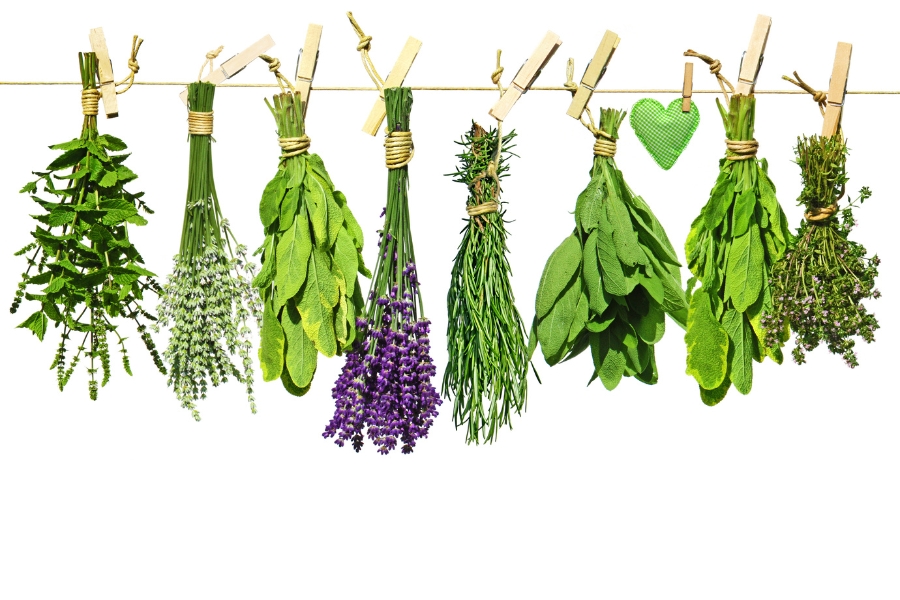
Herbs
Adding herbs into a balanced diet won’t just add flavour; some are believed to increase energy too. There isn’t enough evidence or research on herbs for energy to make a firm argument, but it’s worth mentioning. Sage is believed to have cognitive-enhancing effects that can help boost energy, and lavender is said to cause mental alertness. Some herbs are used in aromatherapy, like peppermint, which is believed to increase energy and mental alertness.
The Bottom Line
Energy is crucial. It helps in muscle movement, cell repair, and physical activity. The body needs energy to function correctly and keep systems moving. Being mindful of the foods we eat is a simple and healthy way to stay on top of energy levels.
This list of the best vegan whole foods for energy will help you get what you need. It’s important to plan out meals that are nutritionally dense. Eat a variety of fruits, vegetables, beans, grains, nuts, seeds, and the other tasty foods mentioned above.
It's fortunate that eating whole, plant-based food and losing weight in a slight calorie deficit results in more energy and a better overall feeling! "When you switch to a whole food plant-based diet, you'll naturally lose weight and feel more energized," advises Dr. Caldwell Esselstyn.
"A whole food plant-based diet is a healthy and sustainable way to lose weight, while also promoting optimal health and well-being," explains Dr. Saray Stancic. Following the vegan whole foods diet is a great way to operate at your best and keep energy levels in a good, healthy spot. This vegan whole foods list will help increase energy levels as a vegan.
Being super strict with meal plans isn’t always the best move. For some, that's a good way to end up binging on junk food. It’s okay to enjoy the foods you love, but add in plenty of nutritious meals, too. What you eat shouldn’t consume your every thought, but putting effort into loading your plate in a way that serves you will help you thrive.
Frequently Asked Questions
How do we increase energy levels?
There are other ways to increase energy beyond eating nutritionally dense whole foods. Moving more helps give the body more energy. Working out and increasing physical activity improves muscle strength and boosts endurance. It improves the cardiovascular system and sends nutrients and oxygen to tissues. The improvement in heart and lung health brought by physical activity means more energy. Regular exercise enhances the production of energy.
Does caffeine provide energy?
Caffeine provides energy, but it doesn’t last. It is a stimulant that blocks the neurotransmitter adenosine, which is known to cause drowsiness. The body absorbs caffeine well, and those who consume it see their energy increase quickly. Caffeine may not be the best source of energy, but it does keep the mind alert and awake.
Do vegans have low energy?
A vegan diet doesn’t automatically mean low energy. This happens when people don’t eat nutritionally dense foods. It’s important to get enough B12, which helps the body convert food into energy. It’s common for people, vegan or not, to not get enough B12. When eating a well-balanced vegan whole-food diet, people tend to notice an increase in energy levels, among many other benefits. While it’s possible to have low energy on a vegan diet, fixing the issue tends to be as simple as adding in a variety of delicious healthy foods.
What foods are good for fatigue?
Consuming sources of vitamin C, vitamin B12, folic acid, magnesium, and zinc for fatigue is beneficial. Food fortified with vitamin B12, dark leafy greens, legumes, oranges, tomatoes, nuts, seeds, whole grains, and other plant-based whole foods are great additions to meals for those who struggle with fatigue.
Do whole foods give energy?
Yes, whole foods are a great source of energy. Whole foods can provide sustained energy and help regulate blood sugar levels. Whole grains like quinoa, oats, and brown rice assist in controlling blood sugar levels and provide sustained energy. Nuts, seeds, beans, fruits, vegetables, and more, provide protein, magnesium, and antioxidants. All of these are beneficial when it comes to energy. These foods tend to be lower in sugar and high in fibre, too.
How to boost energy levels?
Following a whole food plant-based diet is a great way to boost energy levels. There are plenty of ways to increase these levels beyond food choices. Exercising is highly beneficial when it comes to energy. When you’re tired, working out is probably not something you’ll be excited about, but it might be the boost you need.
Relaxing before bed and sleeping at a time that allows plenty of it will also help. Lowering stress levels by unwinding with a book or practising yoga is suitable for energy, as stress takes a lot out of a person. Drinking less alcohol and more water is beneficial too.

💚 "Happy Plant-Based Eating & Exercising!" 💚

Plant-Based Susy
Plant-Based Nutrition Professional & Weight Loss Coach
Empower Yourself: Embark on a Delicious Fat Loss Adventure

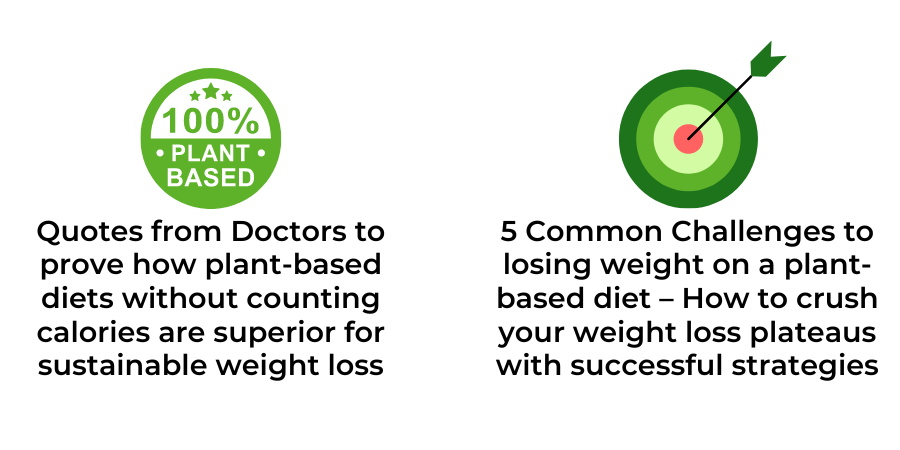
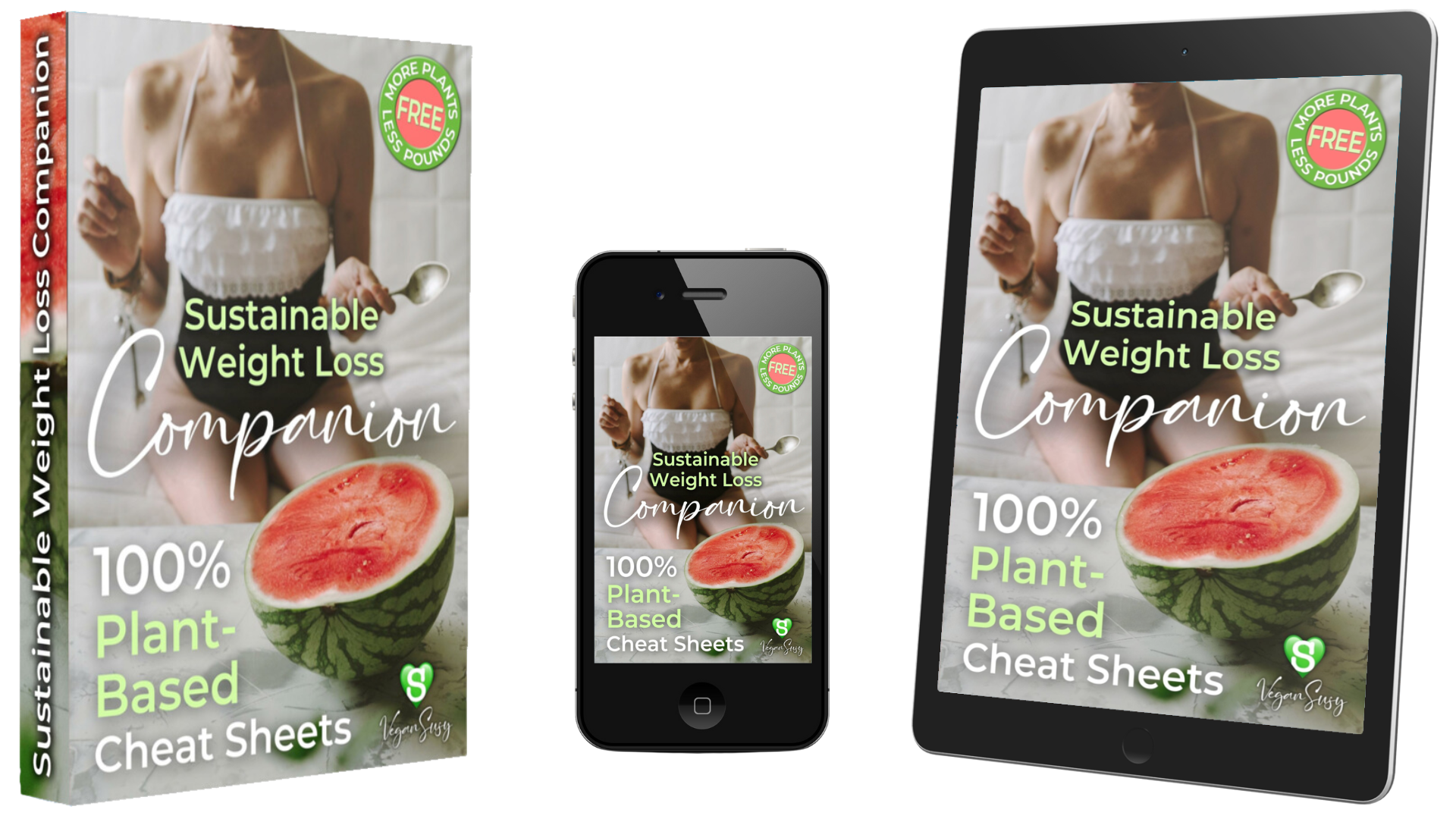
🍉 Get Ready to Jump Start Your Fitness Goals AND DISCOVER A HEALTHIER YOU!
🍉 Let's Make Your Fat Loss & Optimum Health Journey a Delicious Success Story!
🍉 Get The FREE Sustainable Weight Loss Companion eBook and CHEAT SHEETS!
More Free Resources
Unlock Your Transformation Today!
© 2025 VeganSusy Ltd. All Rights Reserved


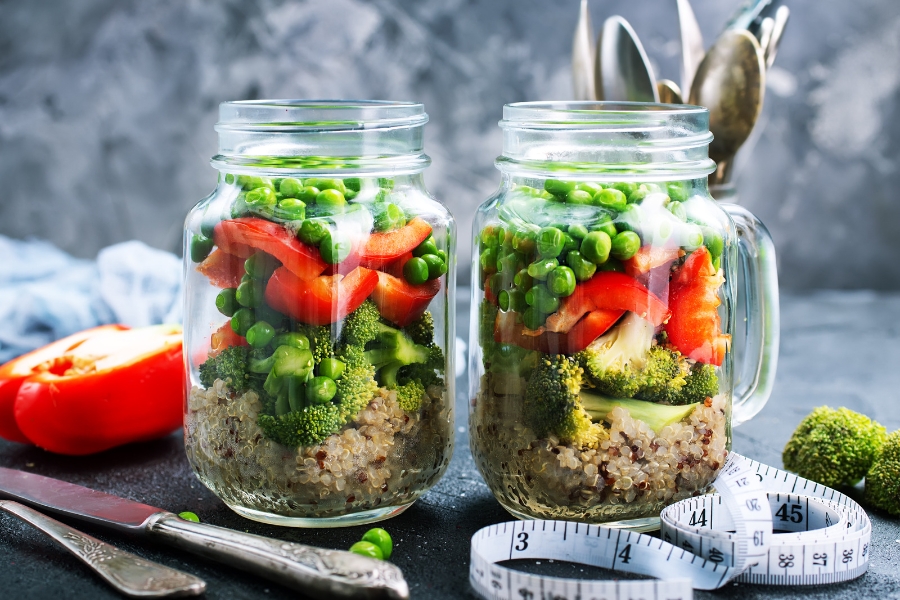
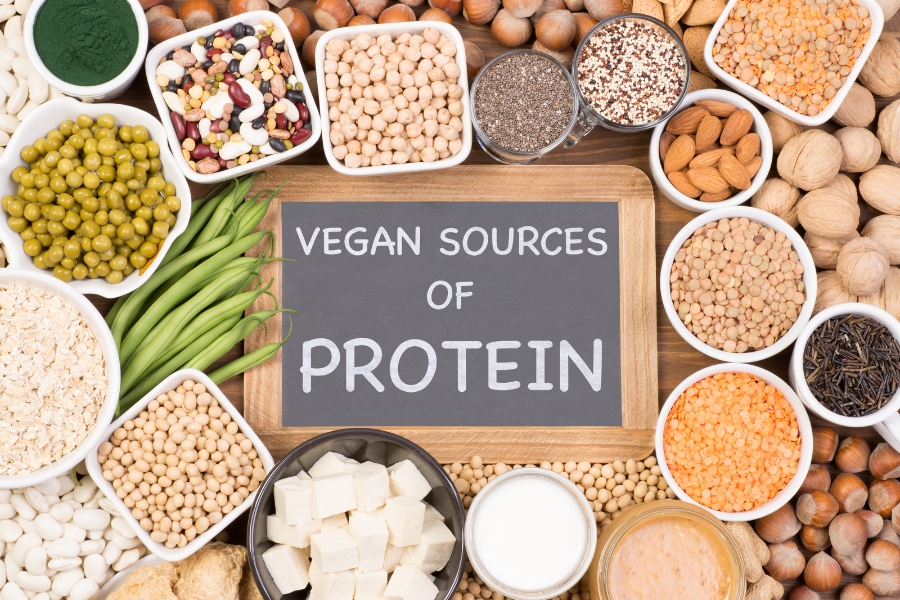

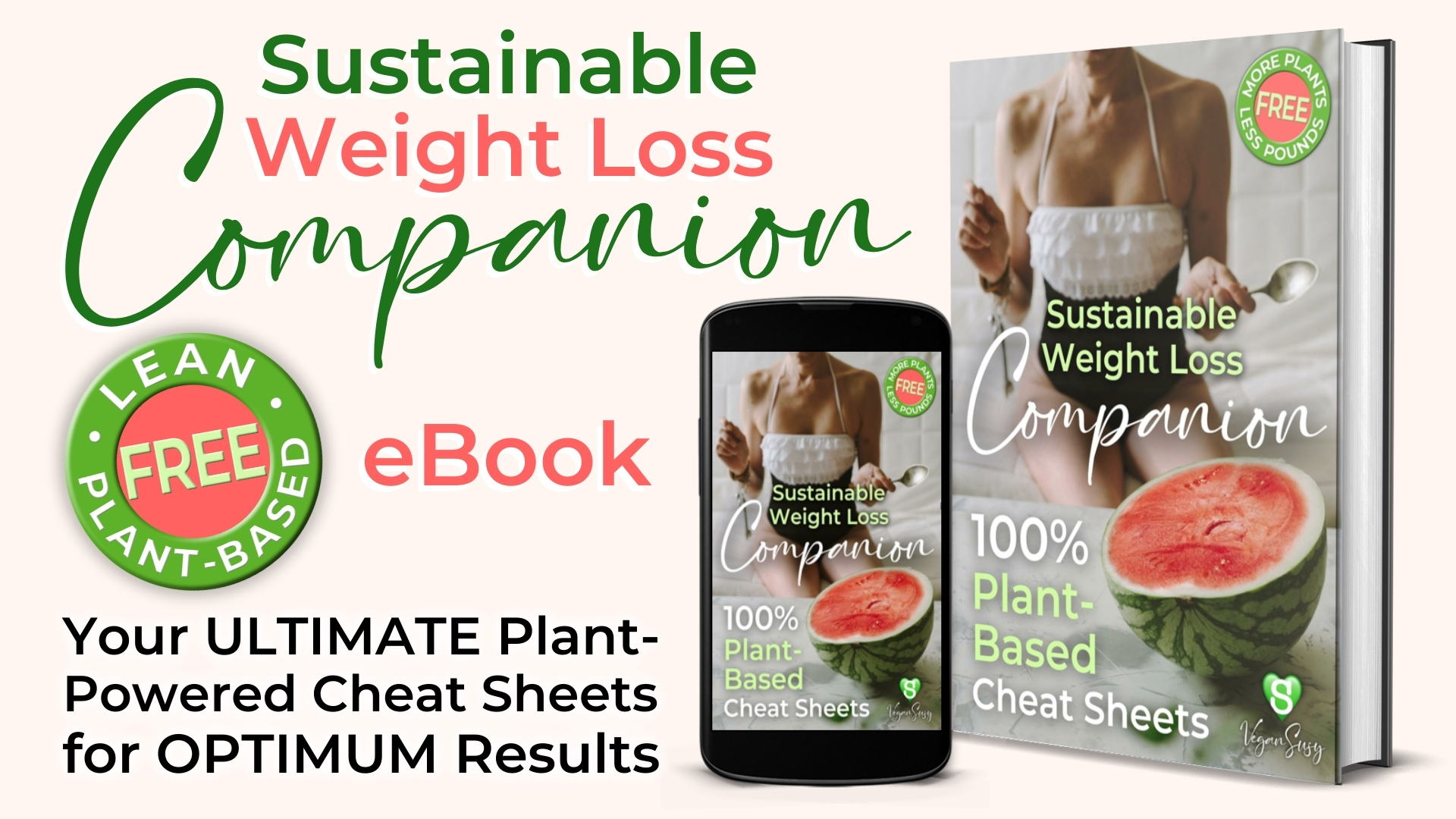





Facebook
Instagram
Youtube
Pinterest